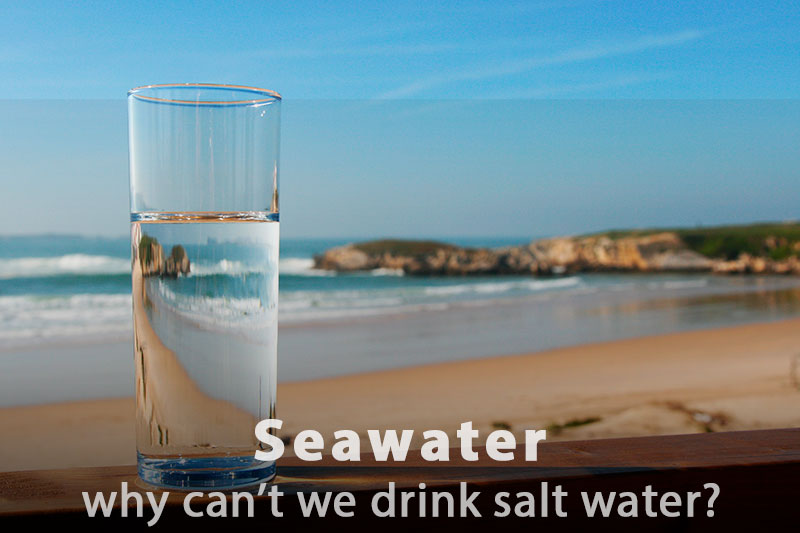It is widely known that you must not drink seawater, no matter what. But the reason why and those conditions under which one could do it are less obvious. To tackle this challenging topic, we've drawn on data from healthcare professionals and researchers.

The thing is that seawater is so salty that its removal from the body would take a lot more liquid than one absorbed with this salt water just before.
A few days later, the kidneys fail, and the human body's water loss reaches a critical point.
A mixture of fresh and seawater on a 3:2 ratio makes up a liquid that you can drink for a couple of days without considerable harm to your health.
For a better understanding of the subject, we have to drill down into human physiology. Our body is able to ingest no more than 20 grams of salt a day (the average salt intake depends on the country and ranges from 6 to 9 grams) and needs 2 liters to survive. If taking the average salinity of ocean water at 35 per mil, this amount contains as much as 70 grams of salt. First of all, 3.5 fold excess of salt in the body will result in the kidneys’ failure—they just can't process such an amount of salt.
And to top it off, the human body will endeavor to get rid of the excess by dissolving salt in water and naturally desalinating itself. Where will it take water from, you ask? Sourcing from itself means it will soak moisture up from fat, muscles, organs, and even the brain. And a few days later, a person will end up dying of dehydration. Here's the paradox: the more seawater you drink, the sooner the lack of liquids will kill you!
As you know, all rules have exceptions. This also applies to seawater. The first thing to learn is that it should be drunk wisely. Back in the middle of the 20th century, Alain Bombard, a traveler and doctor from France, proved that seawater is drinkable as long as it is being drunk in small doses—around 700 grams a day. And this is not just a random amount—it’s a concentration that does not exceed 20 grams of salt and can be easily desalinated by kidneys. But for what's it worth, do not keep having such a drink longer than 5-7 days. This is an option for survivors of a shipwreck to save some time before they get rescued.
Besides, you can dilute seawater with freshwater. For this, mix 60% of freshwater with 40% of seawater. You can drink the resulting liquid in any amount and not worry about complications. Drinking salty liquid for days will certainly not add to your health, but drinking it for a couple of weeks will not send you to glory yet.
Finally, there are certain circumstances under which humans can drink seawater. Some lagoons and seas meeting large rivers feature much lower salinity than global oceans. These are, for example, the Baltic, Caspian, and Azov Seas with average salinity ranging from 10 to 14 ppm. Consequently, their water is not that tasty indeed, but less harmful, though.
References: Links and sources